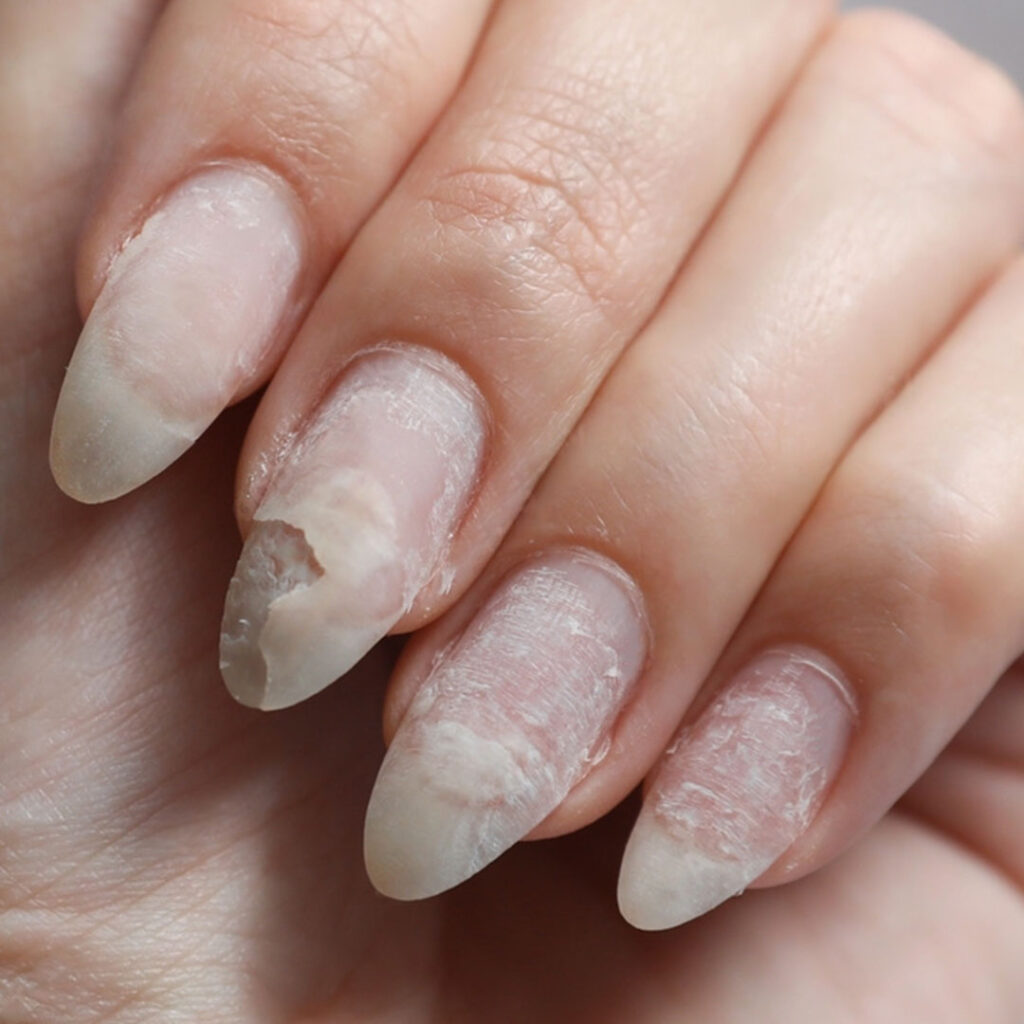We know for sure that our nails are healthy.
Healthy nails are an important part of overall skin health, and can provide clues about your overall health and well-being. Here are some tips for keeping your nails healthy:
Keep your nails clean and dry: Make sure to wash your hands regularly and dry them thoroughly, especially after being in water. This will help prevent the growth of fungi and bacteria that can cause infections.
Avoid harsh chemicals: Exposure to harsh chemicals, such as nail polish removers, can dry out your nails and make them more susceptible to damage. Choose gentle, nourishing products whenever possible.
Stay hydrated: Drinking plenty of water can help keep your nails hydrated and prevent them from becoming dry and brittle.
Eat a balanced diet: A diet that is rich in vitamins and minerals, especially biotin and vitamins B, C, and D, can help support the health of your nails.
Avoid biting your nails: Nail biting can damage the nail matrix and increase the risk of infection.
Wear gloves when necessary: Protect your nails from damage and infection by wearing gloves when doing household chores, working with harsh chemicals, or gardening.
Take care of any injuries promptly: If you accidentally damage your nail, clean the area with soap and water and cover with a bandage to prevent infection.

By taking these steps and paying attention to any changes in your nails, you can help maintain healthy, strong nails and avoid common problems like nail infections and fungal infections.
Nail Infections
Nail infections can be caused by a variety of factors, including fungal infections, bacterial infections, and yeast infections. Some common symptoms of nail infections include thick, discolored nails, brittle nails, and nails that are separated from the nail bed. In severe cases, nail infections can cause pain and discomfort, and may even result in the loss of the affected nail.
Treatment for nail infections depends on the underlying cause of the infection, but may include:
Antifungal medications: This may be in the form of oral or topical antifungal medications, and is used to treat fungal nail infections.
Antibiotics: Bacterial nail infections may be treated with antibiotics, either topical or oral.
Surgery: In some cases, surgical removal of the affected nail may be necessary to treat a nail infection.
Lifestyle changes: Keeping your nails clean and dry, wearing proper footwear, and avoiding exposure to moist environments can help prevent the development of nail infections.

Misshapen or Brittle Nails
If you are experiencing changes in your nails, it is important to see a doctor for a proper diagnosis. In some cases, treating the underlying cause of the changes may help improve the health of your nails. For example, if you have a fungal infection, your doctor may prescribe an antifungal medication. In other cases, making changes to your diet, avoiding harsh chemicals, and wearing gloves when necessary may help improve the health of your nails.
Misshapen or brittle nails can be caused by a variety of factors, including:
- Aging: As you get older, your nails can become thinner, more brittle, and more susceptible to damage.
- Illness: Certain medical conditions, such as thyroid disorders, anemia, and psoriasis, can cause changes in the appearance and strength of your nails.
- Fungal infections: Fungal infections can cause your nails to become thick, discolored, and brittle.
- Nail trauma: Trauma to the nail, such as from wearing tight shoes or from frequent manicures, can cause nails to become misshapen or brittle.
- Certain medications: Certain medications, such as chemotherapy drugs and some blood pressure medications, can cause changes in the appearance and strength of your nails.




